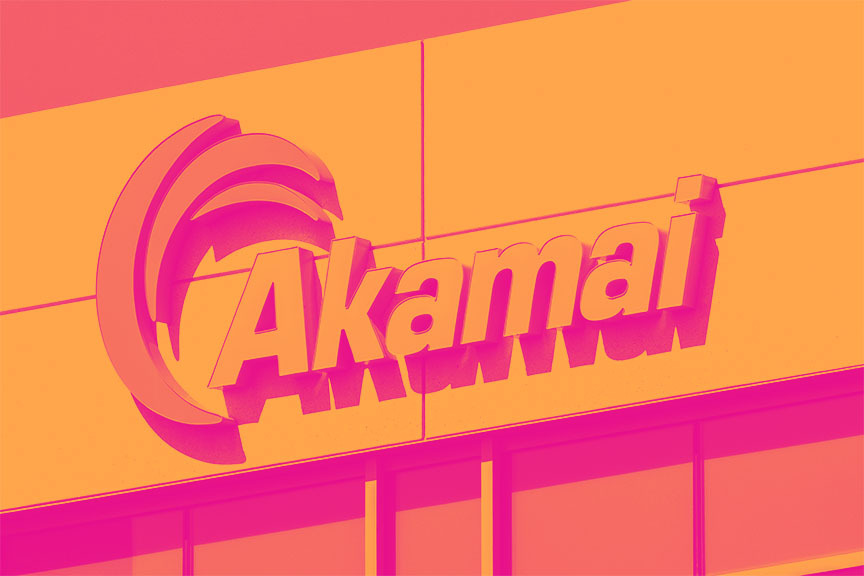
Akamai’s first quarter results were met with a negative market reaction, despite the company matching Wall Street’s revenue expectations and exceeding analyst forecasts for adjusted earnings. Management attributed the quarter’s performance to continued momentum in its security and compute segments, with both areas growing at double-digit rates and now comprising the majority of Akamai’s revenue. CEO Tom Leighton highlighted strong customer adoption of Guardicore for segmentation and robust demand for Akamai’s API security products. However, leadership acknowledged that delivery segment revenue declined and operating margins compressed from the prior year, largely due to business mix shifts and higher costs.
Is now the time to buy AKAM? Find out in our full research report (it’s free).
Akamai (AKAM) Q1 CY2025 Highlights:
- Revenue: $1.02 billion vs analyst estimates of $1.01 billion (2.9% year-on-year growth, in line)
- Adjusted EPS: $1.70 vs analyst estimates of $1.57 (8.6% beat)
- Adjusted Operating Income: $307 million vs analyst estimates of $285.2 million (30.2% margin, 7.7% beat)
- The company slightly lifted its revenue guidance for the full year to $4.13 billion at the midpoint from $4.1 billion
- Management slightly raised its full-year Adjusted EPS guidance to $6.25 at the midpoint
- Operating Margin: 15.2%, down from 16.9% in the same quarter last year
- Market Capitalization: $11.64 billion
While we enjoy listening to the management's commentary, our favorite part of earnings calls are the analyst questions. Those are unscripted and can often highlight topics that management teams would rather avoid or topics where the answer is complicated. Here is what has caught our attention.
Our Top 5 Analyst Questions Akamai’s Q1 Earnings Call
-
Amit Daryanani (Evercore) asked whether delivery segment improvement was traffic or pricing-driven. CFO Ed McGowan clarified growth was due to traffic gains across key sub-verticals, not pricing.
-
Jonathan Ho (William Blair) inquired about Akamai’s AI firewall and its role in protecting agentic AI applications. CEO Tom Leighton explained the firewall addresses new attack surfaces posed by AI, with a focus on detection, protection, and customer visibility.
-
William Power (Baird) questioned what differentiates Akamai’s segmentation security and the pace of zero trust adoption. Leighton highlighted scale, ease of use, and trust as major differentiators, emphasizing automation and integration capabilities.
-
Jeffrey Van Rhee (Craig-Hallum) pressed on slowing organic security growth and the impact of legacy compute headwinds. McGowan noted a natural product lifecycle slowdown in mature offerings like WAF, while newer solutions such as Guardicore and API Security show rapid uptake.
-
John DiFucci (Guggenheim Securities) asked about leveraging new channel partners for security and infrastructure sales. Leighton and McGowan acknowledged that a growing share of new business, especially in security, is coming through specialized channels and that these relationships are expected to expand cross-selling opportunities.
Catalysts in Upcoming Quarters
In the coming quarters, the StockStory team will be watching (1) the adoption rate and customer feedback for new products like firewall for AI and managed Container Service, (2) evidence of improved sales productivity and increased new customer acquisition following the salesforce restructuring, and (3) the trajectory of delivery segment stabilization or further decline. Additionally, progress in cross-selling to Edgio-acquired customers and success in navigating international customer sourcing concerns will be critical to tracking Akamai’s execution.
Akamai currently trades at $79.60, down from $85.56 just before the earnings. Is the company at an inflection point that warrants a buy or sell? The answer lies in our full research report (it’s free).
High-Quality Stocks for All Market Conditions
Donald Trump’s victory in the 2024 U.S. Presidential Election sent major indices to all-time highs, but stocks have retraced as investors debate the health of the economy and the potential impact of tariffs.
While this leaves much uncertainty around 2025, a few companies are poised for long-term gains regardless of the political or macroeconomic climate, like our Top 5 Growth Stocks for this month. This is a curated list of our High Quality stocks that have generated a market-beating return of 183% over the last five years (as of March 31st 2025).
Stocks that made our list in 2020 include now familiar names such as Nvidia (+1,545% between March 2020 and March 2025) as well as under-the-radar businesses like the once-micro-cap company Tecnoglass (+1,754% five-year return). Find your next big winner with StockStory today.






